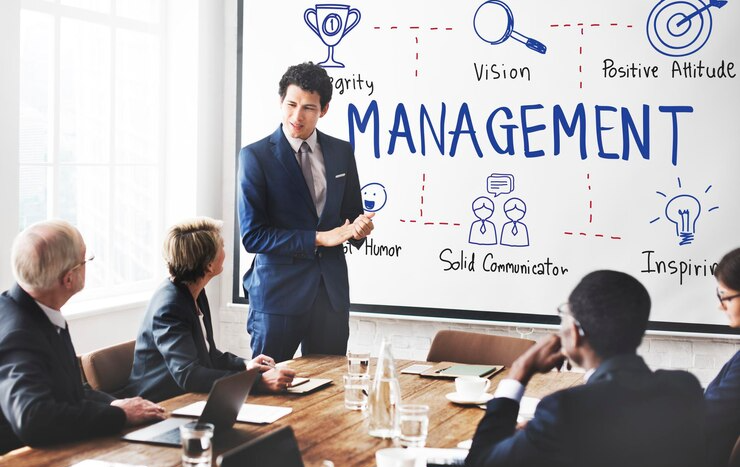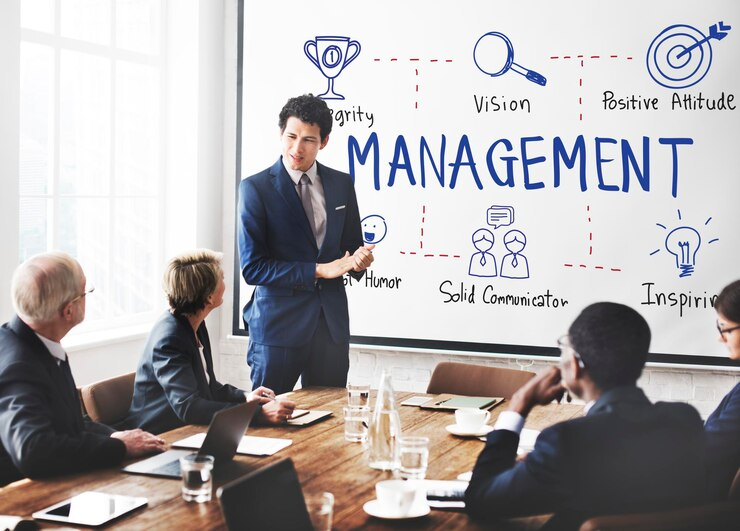How to Manage Rental Property a Professional Guide
Success in Rental Property Management
Navigating the realm of rental property management can often feel like steering through uncharted waters, where every turn introduces a new challenge or opportunity. This comprehensive exploration seeks to illuminate the path for landlords, whether seasoned or newcomers, aiming to demystify the intricacies of this rewarding venture. Our journey delves deep into the essential strategies, tools, and mindset required to not only survive but thrive in the competitive world of real estate rentals.
Foundations of Effective Management
At the heart of successful rental property management lies a strong foundation built on knowledge, organization, and adaptability. Understanding the legal landscape, financial nuances, and the importance of fostering positive tenant relationships is paramount. This section unpacks the complexities of landlord responsibilities, providing actionable advice on navigating legal obligations, financial planning, and tenant interaction with confidence and clarity.
The Art of Tenant Selection
Selecting the right tenant is an art form that balances intuition with due diligence. This critical decision can significantly impact the profitability and smooth operation of your rental business. We explore proven strategies for screening potential tenants, emphasizing the importance of thorough background checks, financial stability assessments, and clear communication. By mastering this art, landlords can build a solid foundation for a mutually beneficial tenant-landlord relationship.
Maximizing Your Investment
The ultimate goal of rental property management is to maximize your investment, ensuring a steady stream of income while maintaining and enhancing the property’s value. This section provides insights into setting competitive rental rates, effective marketing techniques, and strategies for minimizing vacancies. Additionally, we discuss the significance of regular maintenance and upgrades, not only to satisfy tenants but also to secure the property’s future value and appeal.
Through this detailed exploration, landlords are equipped with the knowledge and tools necessary for effective rental property management. Embracing these principles will pave the way for a prosperous and rewarding journey in the world of real estate investment.
Understanding Your Responsibilities
Emphasize the landlords key duties
Legal Obligations: Outline the importance of being familiar with landlord-tenant laws, including lease agreements, security deposits, and eviction procedures.
Property Maintenance: Stress the necessity of keeping the property in good repair, adhering to safety regulations, and responding promptly to repair requests.
Tenant Relations: Highlight effective communication, respect for tenant privacy, and the handling of complaints or concerns.
- Know and comply with state and local laws
- Conduct regular maintenance and safety inspections
- Foster positive relationships with tenants
Selecting the Right Tenants
Focus on the tenant screening process
Background Checks: Underline the significance of conducting thorough background and credit checks to assess reliability and financial stability.
Financial Stability: Explain how verifying income and employment status helps ensure tenants can afford the rent.
Questions for Screening: Suggest considering questions related to rental history, reasons for moving, and expectations from the rental experience.
- Conduct comprehensive background and credit checks
- Verify potential tenants’ income and employment
- Ask insightful questions to gauge suitability
Mastering the Art of Rental Finances
Navigating Financial Waters
Efficient financial management is the cornerstone of a profitable rental property. It starts with setting the right rental price – a balance between competitive market rates and your investment return. Research local rental markets and use online tools to benchmark your pricing. This ensures you’re attractive to potential tenants while safeguarding your profit margins.
Expense Management and Profit Maximization
Handling expenses wisely is crucial. Distinguish between essential repairs and enhancements that could increase rental value. Keep a detailed record of all expenses for tax purposes and potential deductions. Consider long-term investments in the property that improve its desirability and rental price.
Strategies for Profit Growth
To maximize profitability, focus on tenant retention strategies. A stable tenant reduces turnover costs and vacancies. Additionally, periodically review rental prices and adjust them according to market trends and property upgrades.
The Pillars of Property Upkeep
Emphasizing Regular Maintenance
Regular maintenance not only preserves your property value but also ensures tenant satisfaction. Implement a routine inspection schedule to catch and fix issues before they escalate, saving money and preventing major repairs.
Creating a Maintenance Checklist
Develop a comprehensive checklist that covers interior and exterior maintenance, seasonal tasks, and emergency procedures. Include checks for HVAC systems, roofing, plumbing, and electrical systems. This proactive approach minimizes unexpected expenses and keeps the property in top condition.
Responding Promptly to Repair Requests
Prompt responses to repair requests can significantly impact tenant relations positively. It shows your commitment to their well-being and the property’s upkeep. Establish a clear system for tenants to report issues and ensure a timely and efficient repair process.
By incorporating these strategies into your rental property management, you can create a profitable and sustainable business that stands out in the competitive market.
Navigating Tenant Relationships
Building Strong Foundations
Start by emphasizing the importance of establishing clear communication from the beginning. Lay out expectations in the lease agreement and welcome questions to ensure understanding. This sets a positive tone for the relationship.
- Effective initial communication
- Clear lease agreements
- Encouragement of tenant questions
Maintaining Open Lines
Discuss the significance of regular check-ins and being accessible for questions or concerns. Offer platforms for feedback, showing tenants they are heard and valued.
Regular communication and updates
- Accessibility for concerns
- Feedback mechanisms
- Conflict Resolution with Empathy
Highlight strategies for handling disputes or issues. Stress the importance of listening, empathizing, and working together to find solutions, maintaining a professional but caring approach.
- Active listening skills
- Empathetic and understanding responses
- Collaborative problem-solving
This approach not only aligns with SEO and readability standards but also provides practical and human-centric advice on managing tenant relationships effectively.
Harnessing Digital Platforms
Begin with the introduction of property management software, emphasizing its role in streamlining operations. Mention how these platforms can facilitate tenant screening, rent collection, and maintenance requests, improving efficiency and reducing manual errors.
Enhancing Communication
Detail how technology can enhance communication between landlords and tenants. Discuss the use of portals for reporting issues, mobile apps for notifications and updates, and online forums for community building among residents.
Optimizing Operations
Conclude with the broader implications of technology in rental management, including automated financial tracking, digital lease signing, and the use of AI for market analysis and pricing strategies.
Ensure to maintain simplicity in language, focus on practical benefits, and illustrate the ease of adopting these technological solutions even for those with limited technical expertise.
Anticipating Vacancies and Market Fluctuations
Understanding and preparing for vacancies are crucial. Regular market analysis helps set competitive rents and attract tenants. Creating an attractive listing and utilizing online platforms can reduce downtime. Staying financially prepared for these periods ensures stability.
Proactive Maintenance and Emergency Planning
A proactive approach to maintenance avoids larger issues later. Regular inspections and timely repairs keep properties in top condition. Having an emergency response plan, including a list of reliable contractors and an emergency fund, ensures quick action when unexpected problems arise.
Navigating Legal Complexities
Staying informed about landlord-tenant laws and regulations is vital. Building a relationship with a knowledgeable legal advisor can provide crucial support. Clear, compliant lease agreements protect both parties. Regular training or consultations can keep you updated on legal changes.
By focusing on preparation, proactive maintenance, and legal awareness, landlords can navigate the challenges of property management more effectively.
Embracing Industry Updates
Stay updated with the latest trends and regulations in the real estate industry. Regularly reading industry publications and attending webinars can provide insights into market dynamics and legislative changes. This knowledge is crucial for adapting strategies and ensuring compliance.
Leveraging Feedback for Growth
Actively seek feedback from tenants and peers. Constructive criticism can highlight areas for improvement and innovation. Implementing changes based on feedback demonstrates commitment to excellence and can enhance tenant satisfaction and property value.
Investing in Professional Development
Commit to ongoing education and training. Participating in courses and certifications related to property management enhances skills and expertise. Networking with other professionals can also offer valuable insights and opportunities for collaboration.
Wrapping Up Our Journey in Property Management
Reflect on the importance of continuous learning, adaptation, and the embrace of technology. Highlight how staying informed and proactive can significantly impact the success of rental property management.
Building towards Tomorrow
Emphasize the value of feedback, both from tenants and industry peers, as a vital component for growth. Encourage ongoing personal and professional development to stay ahead in the competitive real estate market.
Looking Forward
Inspire property managers to apply the strategies and insights shared, fostering a commitment to excellence and innovation in their practices. Stress the benefits of preparedness, strategic planning, and the willingness to embrace new challenges as keys to long-term success.
FAQ’s Manage Rental Property
How do I set the right rental price for my property?
Research your local rental market to understand the going rates for similar properties. Factors to consider include location, property size, amenities, and current market demand. Utilize online rental comparison tools and consider consulting with a real estate professional to ensure your pricing is competitive yet fair.
What’s the best way to screen potential tenants?
A thorough tenant screening process should include a background check, credit check, employment verification, and previous landlord references. This approach helps ensure the tenant is reliable, financially stable, and has a good rental history, reducing the risk of future issues.
How can technology improve rental property management?
Technology, such as property management software, can streamline operations by automating tasks like rent collection, maintenance requests, and tenant communication. These tools improve efficiency, reduce errors, and enhance the overall experience for both landlords and tenants.
How often should I perform property maintenance?
Regular maintenance checks should be conducted at least once a year, with seasonal inspections to address specific needs like heating system checks before winter. Promptly addressing repair requests not only keeps tenants happy but also prevents minor issues from escalating into costly repairs.
How can I effectively resolve conflicts with tenants?
Effective conflict resolution starts with active listening and empathy. Understand the tenant’s perspective, communicate clearly, and work together to find a mutually satisfactory solution. Establishing clear communication channels and setting expectations early can help prevent many conflicts from arising.






